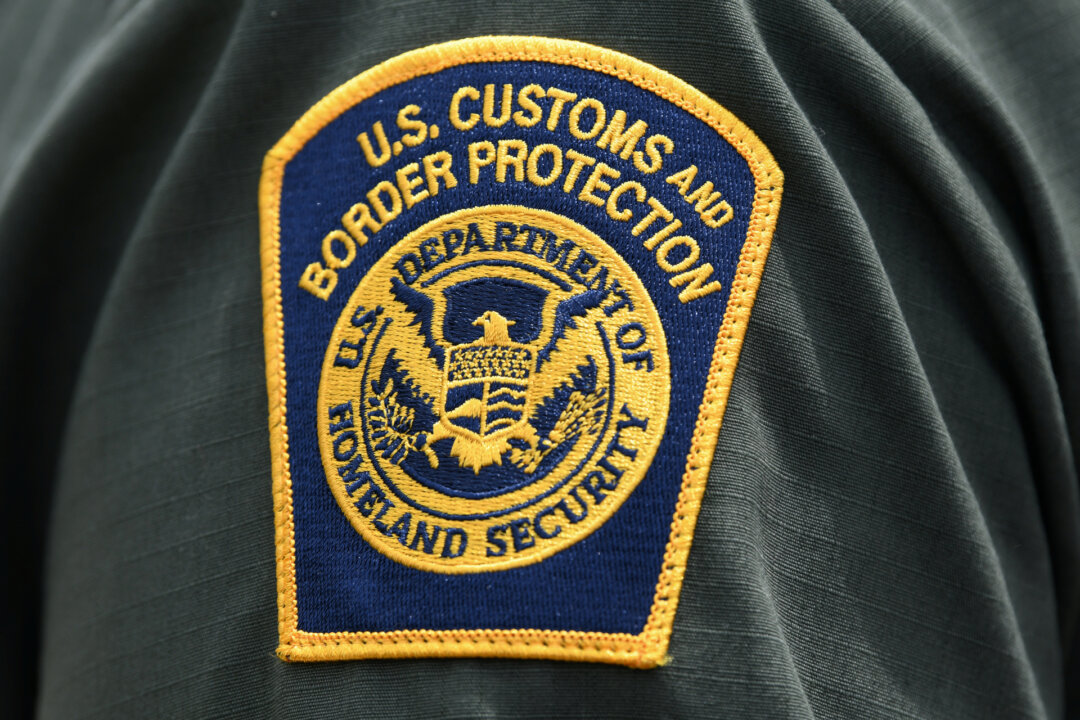‘Drug traffickers are persistent in their attempts to smuggle sedatives such as xylazine into the United States,’ a CBP director said.
Federal agents at a Chicago air cargo facility have seized shipments from China containing 18 pounds of xylazine, which is increasingly found in the U.S. illicit drug market.
The three shipments arrived on April 12 and were headed to residences in Cleveland and Philadelphia, Customs and Border Protection (CBP) announced in a statement on April 16.
“Drug traffickers are persistent in their attempts to smuggle sedatives such as xylazine into the United States, however, through our hard work and vigilance we will continue to intercept these dangerous substances at our port of entry before they can harm our communities,” LaFonda Sutton-Burke, director of field operation at the Chicago field office, said in a statement.
Xylazine, also known as “tranq” and the “zombie drug,” is a veterinary medication that acts as a sedative when administered to animals such as cattle, sheep, and horses during diagnostic and surgical procedures. Xylazine is not a controlled substance in the United States, but it is not approved for use on people, according to the U.S. Centers for Disease Control and Prevention.
The U.S. Drug Enforcement Administration (DEA) has warned that xylazine is making the deadly fentanyl crisis in the United States “even deadlier,” as fentanyl adulterated with xylazine has a longer-lasting psychoactive effect than fentanyl alone, increasing the risk of overdose death.
The Mexico-based Sinaloa and Jalisco cartels are known to be sourcing chemical precursors from China before these chemicals are manufactured into fentanyl. Last year, the House Select Committee on the Chinese Communist Party warned in a report that China-produced xylazines “are rapidly proliferating across the United States.”
In October 2023, the China-based Hanhong Medicine Technology Company was sanctioned and indicted for allegedly exporting large quantities of fentanyl precursors and non-opiod additives, including xylazine, to the United States and Mexico.
Two recent criminal cases involving xylazine took place in New York.
On April 11, the DEA announced the indictment of two men for allegedly running a drug packaging and distribution mill in an apartment in the Inwood neighborhood of Upper Manhattan. Local law enforcement officials found “thousands of glassine envelopes of potentially lethal drug mixtures, bags of powdered cocaine and xylazine, and bottles of veterinary-grade xylazine,” according to a statement.
“These drug traffickers were preparing to flood New York City with deadly poison–fentanyl and xylazine packaged for profit—without regard for the lives it would cost,” New York Police Department (NYPD) Commissioner Jessica S. Tisch said in a statement.
A couple was charged in Central Islip on Feb. 7, 2024, for allegedly selling 270 grams of fentanyl between May 2023 and January 2024 across Long Island, according to the DEA. The agency said several fentanyl doses tested positive for xylazine.
On April 17, the NYPD’s 62nd Precinct took to social media platform X to warn locals about xylazine.
“Xylazine, or ‘Tranq,’ has been found recently in the NYC drug supply. This particular drug is usually paired with fentanyl,” the precinct wrote, before warning that the drug can cause severe skin wounds, drowsiness, unresponsiveness, low blood pressure, and slowed heart rate.
In recent years, some states have enacted laws to regulate the use of xylazine, including South Dakota, Pennsylvania, Ohio, and West Virginia.
A bipartisan group of lawmakers introduced the Combating Illicit Xylazine Act in both the House and the Senate in February. The legislation would make xylazine a Schedule III controlled substance while enabling the DEA to track its manufacturing to prevent any diversion to the illegal market.
“Illicit xylazine is contributing to the national drug epidemic and driving up overdose deaths in communities across the country,” Sen. Chuck Grassley (R-Iowa), who led the Senate bill with Sen. Catherine Cortez Masto (D-Nev.), said in a statement at the time.
“This bipartisan bill recognizes the lethal threat of xylazine and provides law enforcement new tools to combat its spread, while ensuring veterinarians, ranchers and cattlemen can continue to access the drug for legitimate animal treatment,” Grassley said.

